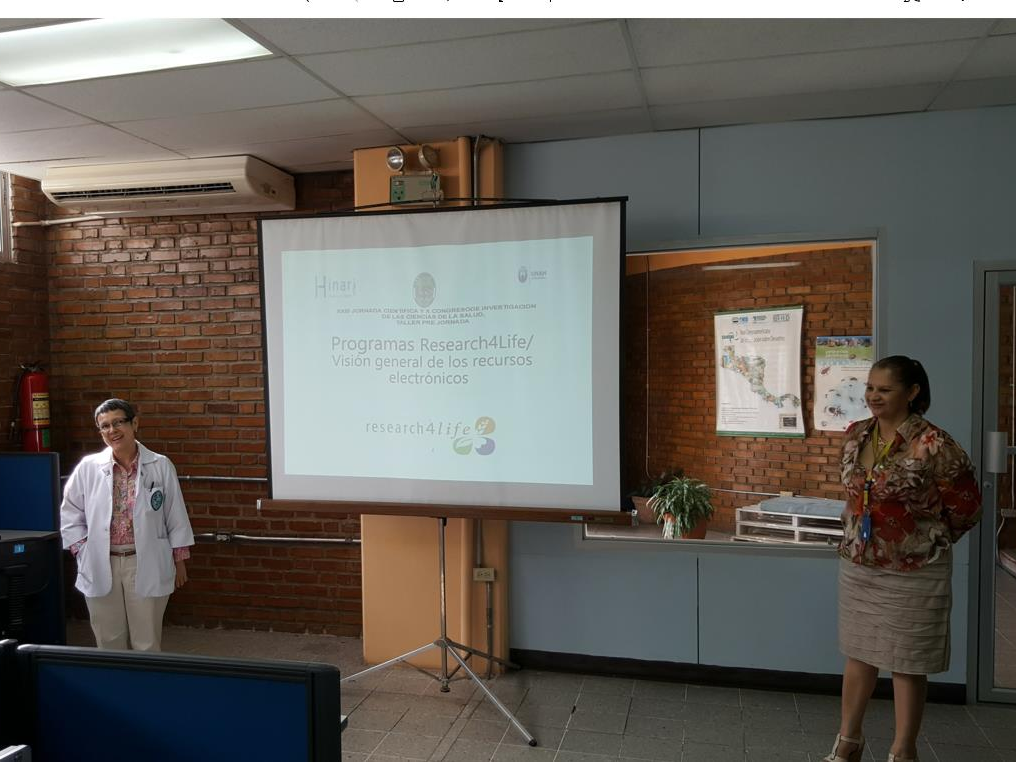Honduran doctor devotes decades to Research4Life training
Dr. Jackeline Alger has been a key figure in promoting health research in Honduras. Thanks to her and her colleagues in the Honduras Virtual Health Library (Honduras VHL), thousands of people have been trained on the use of Research4Life over the last two decades. Their impressive work has improved healthcare and health studies in the country and gained international recognition, Alger said.
“In Honduras, the Research4Life information resources have been validated for their quality by sector organizations and authorities of the health sector such as the Honduras Medical College, with members throughout the country,” she pointed out.

Tegucigalpa, Honduras.
Dr. Alger mentors undergraduate and postgraduate students, faculty members and health professionals interested in performing health research. She combines this with clinical laboratory work at Hospital Escuela, Honduras’ main public health hospital, teaching in the Faculty of Medical Sciences at UNAH, a national public university along with health research and editorial activities.
She was introduced to Research4Life in 2001 when it was still known as Hinari. Since then, the Honduras VHL, established a year before, has been equipped with additional and updated resources. According to Alger, that access has added to the betterment of public health and expansion of the research ecosystem in Honduras by providing training information for health practitioners, designing healthcare guidelines and arming researchers with necessary skill and tools to conduct high quality research.
Prior to Research4Life, access to quality and up-to-date information was limited by high costs, and researchers were not able to find resources anytime, anywhere. Alger reports that “with the Honduras VHL, not only the ease of access but also to the type of information resources was improved by the growing inclusion of journals, books, and other material provided by Research4Life.”
Continuous education
Now, Dr. Alger takes pride in the work she has done in the last twenty years through institutional collaboration. Since 2002 the Honduras Medical Library and the VHL have been training end-users and librarians across the country in the usage of Research4Life resources, and the training activities have been consistent for more than ten years and attracted collaboration from other Latin American countries, and farther. Every year, around 120 face-to-face workshops are conducted gathering a total of 3000 trainees. This training targets teachers, researchers and authorities and covers the navigation and use of Research4Life.

In 2017, Alger and her colleagues’ work was awarded a grant by the US Medical Library Association to train other trainers and users. Then, up to 100 people from public and private institutions benefited from the training in 3 Honduran cities. In addition, a network of training centers across the country dedicated to promoting the use of Research4Life was set up to facilitate widespread continuous education, although Alger says it needs strengthening.
Learning from the pandemic
In 2021 alone, a virtual workshop on information resources for health was conducted and attended by more than 4300 physicians, professionals and students. This was possible while the world grappled with the coronavirus pandemic; yet, it was an opportunity to expand the training and reach more participants. In the same year, in-person workshops on the same topic gathered approximately 500 participants and about 300 had been trained the year before.
“After a period of uncertainty and hopelessness we learned how to adapt and adopt remote teaching technology and continue to provide virtual training, reaching an even greater number of participants,” recounts Alger. “Now we know that during the post-pandemic period we will maintain the richness of face-to-face workshops, but we will keep the strength of remote online workshops.”
Teamwork is key
The workshops are free and anyone in Honduras who is interested can attend. With present challenges including poor internet, insufficient computers and lack of appropriate platforms for remote training, Alger admits that she could not achieve this on her own and stresses the role of teamwork in counteracting frustrations related to access to information resources: “The Honduras VHL Consultative Committee provides a flexible and operational space to discuss and identify ways to move forward in a low resourced context.”
She adds, “It makes me very proud to be part of a group of persons that have contributed to increase the knowledge and abilities of the participants in a very practical and powerful way, strengthening good practices in research and healthcare.”
Dr Alger, who is also part of the Research4Life User Group community, describes Research4Life as a “passport for 24/7 access” that is “even more important in a rapidly changing digital world and in pandemic and infodemic times.”
In addition to capacity building, Alger points out that to Research4Life has contributed to the growth of scientific publication in the country – by ensuring access to updated information and research that other groups are publishing, and providing clinical care guidelines and policies for public health programs. Access to training material for good editorial activities and practices has played an important role, Alger said, in getting Revista Médica Hondureña, a journal which Editorial Board Alger directs, indexed in international databases including LILACS, CAMJOL, LATINDEX, AMELICA, DOAJ, and REDIB.
Discover Research4Life
Research4Life provides institutions in lower income countries with online access to academic and professional peer-reviewed content. Find out how to get access.
Already a user? Discover our Training Center, and find free resources to make the best use of Research4Life and improve your research skills.





